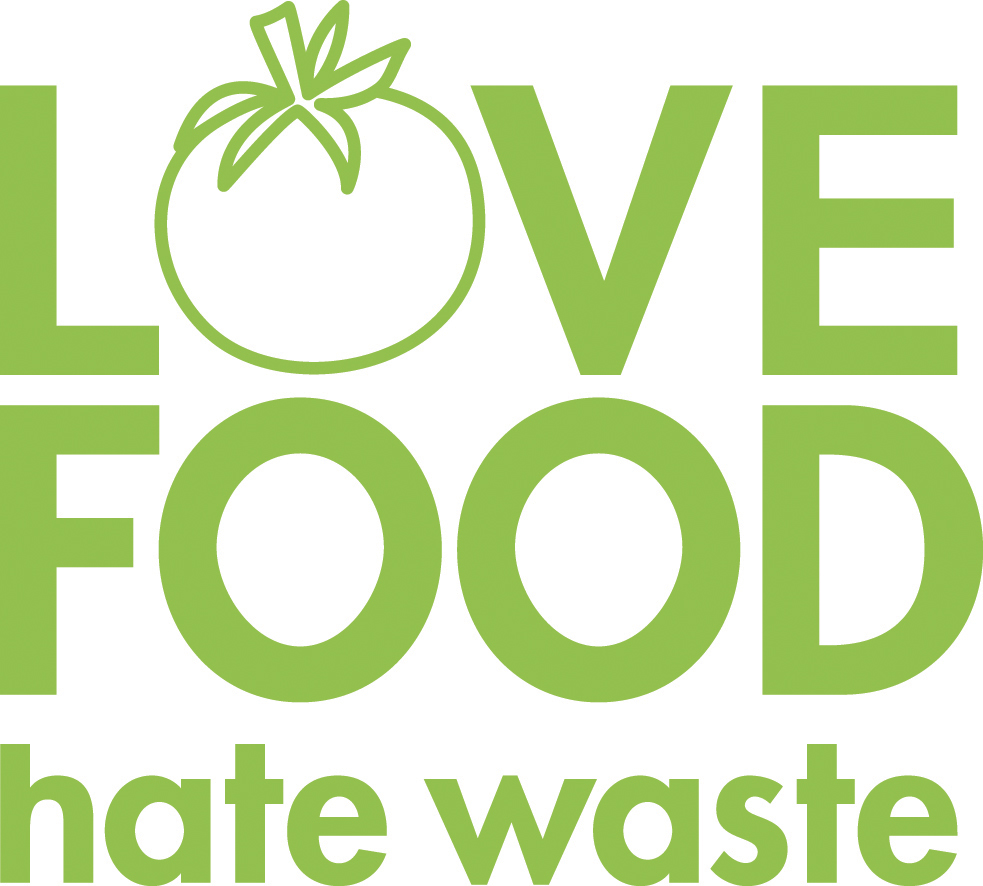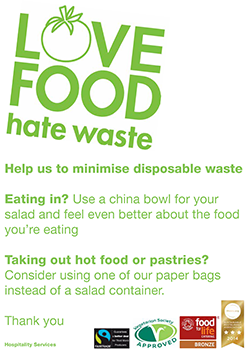
Hospitality Services has focused its efforts on tackling food waste in its restaurants. We have partnered with the Environment Team under the banner of the c-change campaign (the university’s award-winning environmental behaviour change campaign), to reduce food waste and ensure that all food waste produced in our restaurants is processed by anaerobic digestion; Defra’s preferred treatment option.
The university has adopted sustainability as one of its core goals, as reflected in the institution’s Strategic Plan, where it states: “Sustainable campuses: We will pursue our ambitious carbon management targets and maintain our leading reputation for an embedded, system-wide commitment to sustainable practice.”
Processing food waste
As of August 2014 all university food waste has been sent for Anaerobic Digestion, the most sustainable option for processing food waste (according to Defra), rather than being combusted to create biofuel as it was previously.
![]()
Raising awareness of Food Waste
Matching portion sizes more closely to the appetite of the customer.
By encouraging customers to let staff know if they are serving them too large a portion, and using signage to encourage customers to only take as much as they need in self-service areas.
Getting feedback from customers on reasons they left food on their plates
Through a ballot box feedback system focused on food waste reduction, where customers can identify the main reason they left food on their plates today, and suggest ideas for reducing waste.
Raising awareness of the environmental impacts of food waste
Through an engagement campaign run in Hospitality Services restaurants during Green Week (both at lunchtimes, and dinnertimes for catered halls).
Table talkers
c-change table-talkers for the food waste campaign were distributed to all tables in all restaurants, with food waste facts, tips, requests to only take/ask for as much food as customers can eat, and requests to fill out the food waste feedback forms.
Banners
Large pop-up c-change food waste banners were placed at a key location in each restaurant, with an environmental message highlighting the scale of food wasted in the UK, and the energy, water and resources which go into the production of this food.
Interactive educational game
Members of the Environment Team visited all University restaurants during lunchtimes and dinners (for catered halls students). An interactive quiz game, based around food waste facts, was developed in-house and played with 313 staff and students throughout the course of the week. Chocolates were given out as prizes, to incentivise those less interested in sustainability issues to participate.


